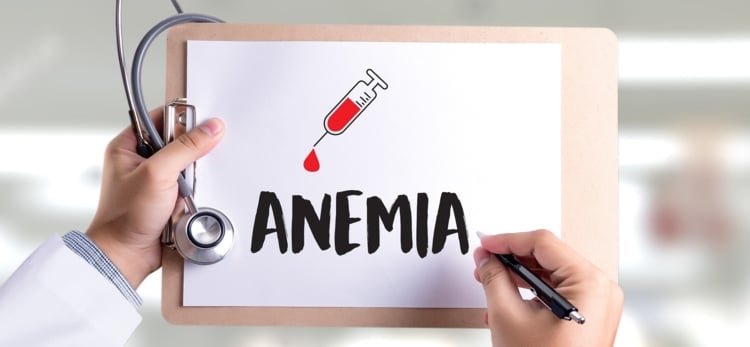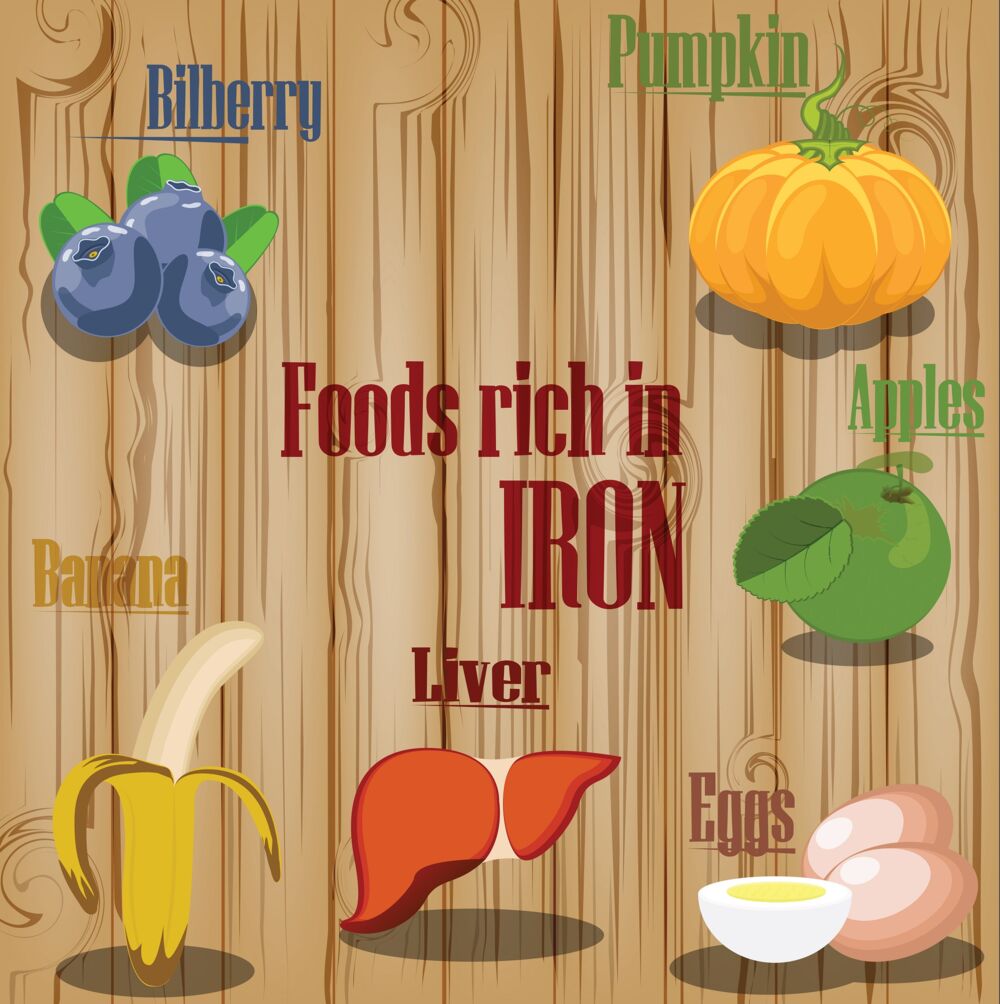Anemia can cause unpleasant symptoms and impact your quality of life, which is why it’s so important to diagnose and treat it as early as possible. This article will help you recognize excessive blood loss during periods and learn how to deal with periods and anemia.
-
Tracking cycle
-
Getting pregnant
-
Pregnancy
-
Help Center
-
Flo for Partners
-
Anonymous Mode
-
Flo app reviews
-
Flo Premium New
-
Secret Chats New
-
Symptom Checker New
-
Your cycle
-
Health 360°
-
Getting pregnant
-
Pregnancy
-
Being a mom
-
LGBTQ+
-
Quizzes
-
Ovulation calculator
-
hCG calculator
-
Pregnancy test calculator
-
Menstrual cycle calculator
-
Period calculator
-
Implantation calculator
-
Pregnancy weeks to months calculator
-
Pregnancy due date calculator
-
IVF and FET due date calculator
-
Due date calculator by ultrasound
-
Medical Affairs
-
Science & Research
-
Pass It On Project New
-
Privacy Portal
-
Press Center
-
Flo Accuracy
-
Careers
-
Contact Us
Iron Deficiency Anemia (IDA) and Heavy Periods: How Are They Related?

Every piece of content at Flo Health adheres to the highest editorial standards for language, style, and medical accuracy. To learn what we do to deliver the best health and lifestyle insights to you, check out our content review principles.
What is iron deficiency anemia?
Menstruation is a natural process, but in some cases, it can have a negative effect on your health. Heavy periods and anemia can be correlated, and many women suffer from different symptoms as a result.
Every woman’s period is different, but most women only lose a few tablespoons of blood each month. If you’re losing more blood than normal during your periods, you lose iron. This makes your hemoglobin (Hb) drop and causes iron deficiency anemia.
Iron deficiency anemia: overview
Anemia is a condition that occurs when you have low levels of hemoglobin. Hemoglobin is a protein inside your red blood cells, and it carries oxygen to your tissues.
Iron is an essential micronutrient and it’s vital to many biological processes, from oxygen transport to cellular respiration. Your body uses iron to make hemoglobin, which explains why not getting enough iron causes anemia. Iron deficiency can be caused by not consuming enough iron through your diet, or by losing a significant amount of blood. This is why heavy periods can cause anemia.
Women who are pregnant or breastfeeding also have a higher risk of developing anemia, since they have to support both their and their child’s iron requirements.
Anemia can often go undiagnosed. Patients overlook symptoms like fatigue, or chalk them up to a different condition or lifestyle factor. They might be unaware of the symptoms that can be caused by low iron levels during periods. This can go on for years in some cases, and it delays getting a proper diagnosis and treatment.
Studies have shown that only 6% of women seek help for heavy periods and anemia. Receiving the proper treatment can dramatically improve your symptoms and quality of life.
What causes of iron deficiency anemia?
Iron deficiency anemia is the most common type of anemia. You can develop this iron deficiency on your period, but there are other things that can cause low iron levels.
Causes of iron deficiency anemia include:
- Blood loss during periods: prolonged or heavy menstruations affect many women. During your period, iron is lost with your blood. You can develop anemia if the blood loss is too heavy, or if that iron isn’t replenished during your cycle.
- Pregnancy, childbirth, and breastfeeding: women are more likely to develop iron deficiency anemia while they’re pregnant or breastfeeding, since they use their iron deposits to provide for another life. Childbirth or a C-section, which cause blood loss, can also contribute to the development of this condition.
- Insufficient iron intake: not consuming enough iron in your diet can cause anemia after some time. That is why women, children, and those who follow a vegetarian diet need to be aware of their iron intake.
- Malabsorption: certain conditions, such as celiac disease or a previous gastric bypass can diminish your body’s ability to absorb iron.
- Blood loss: there are many conditions that can cause bleeding, and you might not even notice them. Erosive gastritis, duodenum /gastric ulcers, and intestinal polyps can cause gastrointestinal bleeding. Uterine fibroids and endometriosis can also cause bleeding. In fact, anemia and endometriosis are closely related.
What are the symptoms of iron deficiency anemia?
Iron deficiency anemia can develop over a long period of time, which is why it’s so easy to overlook it. The symptoms of period-related anemia can vary greatly from one person to the next, but the most common ones include:
- Spoon nails
- Paleness
- Angular cheilosis (ulceration at the side of the mouth)
- Fatigue
- Conjunctival pallor
- Pica (consumption of non-food substances)
- If you’re anemic, your tissues and organs aren’t getting the oxygen they need. That’s why people with anemia tend to feel tired, dizzy, and fatigued.
Take a quiz
Find out what you can do with our Health Assistant

What are IDA complications?
Although anemia is a relatively simple condition, it can negatively affect many areas of your life. Anemia can make it much harder for you to carry out your daily activities or any action that requires physical effort or concentration. It also affects your physical appearance, since it can make you look pale.
Since anemia tends to develop in an insidious manner, it usually causes symptoms that gradually worsen over time. It’s common for patients with anemia to report that they don’t even remember when they started to feel tired, but that their symptoms have increased over the years or months.
The treatment for anemia is simple; but, if left untreated, anemia can become dangerous. Some of the most important complications of anemia include:
- Heart problems. If you do not have enough hemoglobin-carrying red blood cells, your heart has to work harder to move oxygen-rich blood through your body. Cells in tissues need a steady supply of oxygen to work well. Normally, hemoglobin in red blood cells takes up oxygen in the lungs and carries it to all the tissues of the body. When your heart has to work harder, this can lead to several conditions: irregular heartbeats called arrhythmias, some heart murmurs, an enlarged heart (cardio megalia), or even heart failure.
- Pregnancy complications: suffering from anemia throughout a pregnancy can lead to low infant weight, premature labor, and even infant death. Anemic children can also suffer from developmental delays, increased risk of infections.
- Worsening of chronic conditions: if you suffer from other diseases, anemia can make your symptoms worse, or it can affect the way your treatment works.
Anemia and periods
All women lose a certain amount of blood during their periods, but how do you know when to worry?
It might feel like more, but women normally only lose a few milliliters of blood each month. Heavy menstrual bleeding is usually defined as losing more than 80 ml of blood during your entire menstruation.
It’s hard to measure exactly how much blood you’re losing during your period, so these are other ways to determine your period blood loss:
- Expelling large blood clots.
- Needing to use double protection (using both pads and tampons at once).
- Having to change your pad or tampon every 2 hours or less.
- Excessive bleeding that interferes with your usual routine.
- Bleeding through your clothes or bedding, even when you’re using protection.
Although it can be nearly impossible to measure how much you bleed during your period, these can be symptoms of too much blood loss, and they can lead to anemia during your period.
The cause of heavy menstrual bleeding can be unknown, but in some cases, it can be caused by an underlying condition. Some of the most common causes of heavy periods and anemia include:
- IUD (intrauterine contraceptive device)
- Endometriosis
- Fibroids
- Hormonal imbalances
- Pelvic inflammatory disease
- Polyps
- Polycystic ovarian syndrome
- Hypothyroidism
- Anticoagulant drugs.
Some of these conditions don’t cause many obvious symptoms, which is why it’s so important to get regular checkups with your doctor. Other conditions do cause symptoms, including irregular bleeding, bleeding after your period, period pain, excessive cramps, and nausea during your menstruation. Talk to your doctor if you experience any new symptoms or irregularities in your cycle.
How will I know if I’m anemic?
If you suspect that you are suffering from excessive menstrual bleeding and anemia, you’ll need to go to the doctor.
They will be able to perform a physical examination to look for any symptoms of anemia. Afterwards, they will order blood tests to determine your hemoglobin levels and overall health. Imaging tests, such as an ultrasound, can help rule out physical conditions — like polyps, for example — that might be causing your bleeding.
Once the cause of your anemia is determined, your doctor will be able to prescribe the best treatment for you. This could include iron supplements, hormonal contraceptives to manage your menstruation, blood transfusions, and surgery to correct physical abnormalities.
Tips to keep your iron levels up when you're anemic

Fortunately, there are many things you can do to lessen the symptoms of heavy periods and anemia. One of the easiest ways to keep your hemoglobin levels up is by eating iron-rich foods. Some of the best sources of dietary iron include:
- Red meat
- Poultry
- Fish
- Eggs
- Dairy
- Grains
- Tofu
- Beans
- Dark, leafy greens.
Avoid caffeine immediately after your meals, since this substance can decrease iron absorption. Vitamin C, on the other hand, can make it easier for your digestive system to absorb iron. Try drinking some orange juice or eating some strawberries after your meals!
If you’re anemic or suffer from heavy menstrual bleeding, your doctor could also prescribe iron supplements. Don’t self-medicate with iron supplements; when used inappropriately, they can cause constipation and even liver damage.
You can also use a period tracker like Flo to determine your cycles, spot any irregular bleeding, and keep an easy record of your menstruation. This information can be very useful to your doctor.
Heavy periods can cause many unpleasant symptoms, which is why it’s so important to discuss them with your doctor. Listen to your body and don’t ignore symptoms like excessive bleeding and fatigue. With proper treatment, you’ll be able to control your periods and anemia, and go back to your usual routine in no time!


Hey, I'm Anique
I started using Flo app to track my period and ovulation because we wanted to have a baby.


The Flo app helped me learn about my body and spot ovulation signs during our conception journey.


I vividly
remember the day
that we switched
Flo into
Pregnancy Mode — it was
such a special
moment.
Real stories, real results
Learn how the Flo app became an amazing cheerleader for us on our conception journey.




